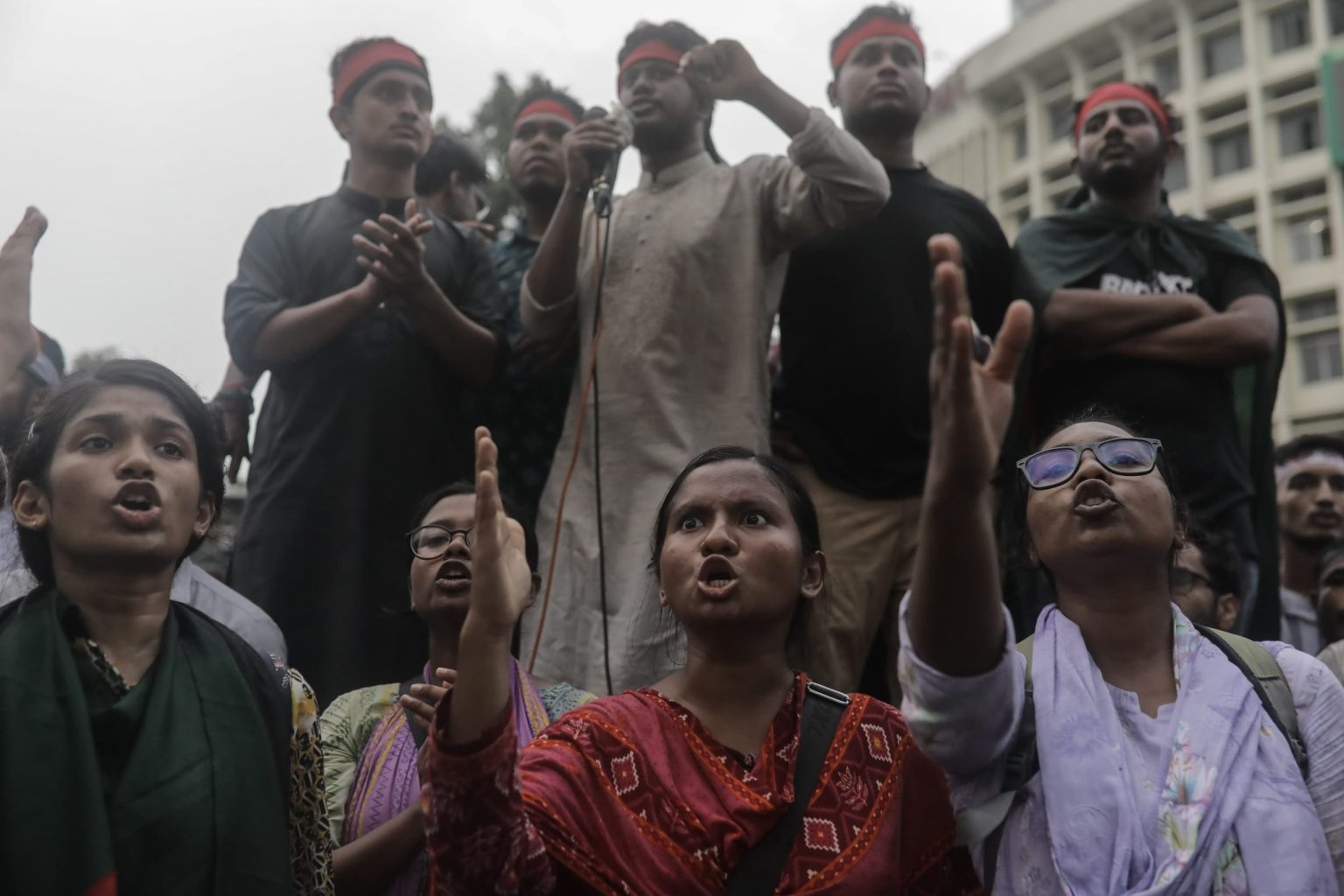On July 8, 2024, the ‘Bangla Blockade’ continued across various parts of the country. In the morning, hundreds of students from Rajshahi University blocked the Dhaka-Rajshahi railway line to protest the reinstatement of the quota system in government jobs.
Meanwhile, at the epicenter of the movement in Dhaka, student protesters gathered in Shahbagh and announced a nationwide mass campaign programme to take place on July 9. They also declared that the blockade would resume on Wednesday.
Nahid Islam, chief coordinator of the quota reform movement and now the chief of the National Citizen Party (NCP), closed the second day of the program with a speech at Shahbagh around 8:30 PM.
“We have been protesting since June 5. We submitted memorandums, raised our demands through all possible channels. We did not take to the streets suddenly. Now the ball is in the government’s court,” he stated.
Protesters left Shahbagh around 8:35 PM after announcing the next steps in the movement. The mass campaign—conducted both online and offline—was organized in coordination with student representatives from across the country.
Earlier that day, demonstrators from traditional protest hotspots—Science Lab, Gulistan, New Market, Banglamotor, Matsya Bhaban intersection, Poribagh, Karwan Bazar, and Farmgate—marched to Shahbagh in a show of solidarity with the movement.
One participant, DU student Tariqul Islam, joined the protest with chains wrapped around his neck and wrists to symbolize what he called the “quota disparity.” The message on his back read:
“96% quota in primary, 82% in railways, 70% in third and fourth grades, 60% in first and second grades and non-cadre, and 56% in BCS!!!”
Tariqul explained, “In our country, meritorious students are trapped by the quota system. More than half the positions in every job are reserved, and in some cases, it’s nearly 100%. Because of this, many talented young people lose hope after completing their education—and some even take their own lives. We must break these chains and ensure fair employment for the deserving.”
Hasnat Abdullah, a spokesman for the movement and now Chief Organizer of the NCP, added, “Students want to return to their study tables, but they can’t. We demand a logical and constitutional reform of the quota system, with minimal reservation only for the truly underprivileged. We are determined to achieve our goal, no matter the cost.”
Sarjis Alam, another frontliner of the movement and also a Chief Organizer of the NCP, said, “Our blockade has already disrupted communication across 40 districts. If we choose to, we can disconnect all 64 districts within the next two days.”
He continued, “If we want to build Shonar Bangla (Golden Bengal), we must allow truly worthy students to lead that future. The current quota system prevents qualified candidates from being selected. Unless this changes, the dream of Shonar Bangla cannot be realized. We will remain on the streets until our demands are met.”
The aim of the blockade was to raise awareness for the students’ cause by bringing traffic to a standstill in key areas of the capital. As a result, commuters returning home from work suffered significantly. From Zero Point to Sadarghat, all roads stretching from Motijheel and Sayedabad through Paltan, Kakrail, the Press Club, and the Secretariat to the High Court were paralyzed, effectively bringing Dhaka to a halt.


